
- Place order

How to Write an Informal Essay: A Beginners' Guide

A typical academic essay is serious writing. It is serious because it is often well-researched and written formally. The typical informal essay is the exact opposite of this.
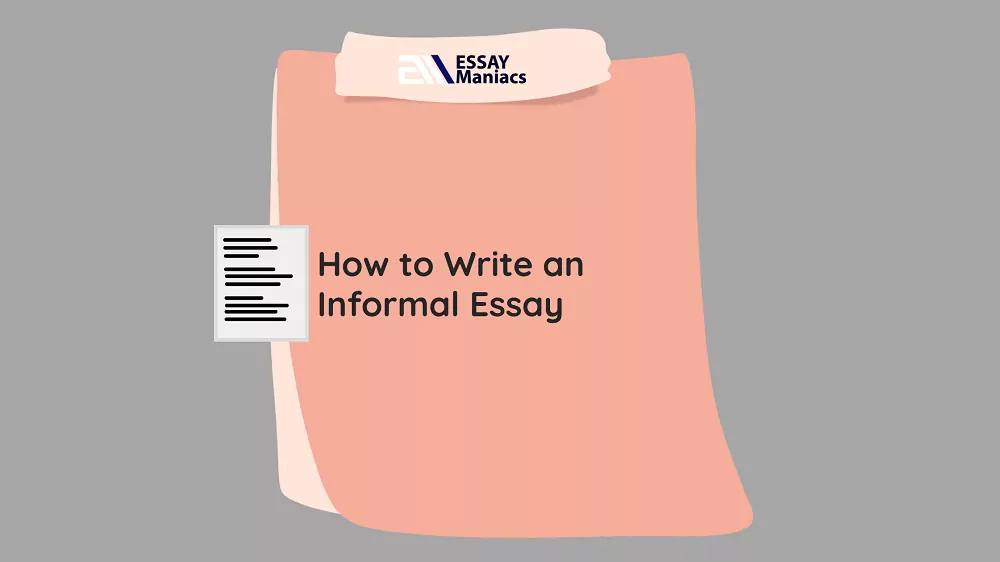
It is often not researched at all and is written in a casual tone. Furthermore, it is commonly written for enjoyment rather than serious discourse. And for that reason, it is a non-fiction essay that does not follow the writing conventions and is purely based on the author's reasons, reflections, and ideas.
In this guide, you will discover everything crucial you need to know to write a brilliant informal essay.
What is an informal essay?
An informal essay is an essay that is written for enjoyment rather than to argue or support a thesis with scholarly evidence. The essay is usually personal in nature and based on memory. A good example of an informal essay is – The happiest day of my life.
To write this essay, you simply need to recall the happiest day of your life and then write about it chronologically. As you can see, you don’t have to do much research to write an informal essay.
The fact that an informal essay is written for enjoyment does not mean that it does not have a set structure. The typical informal essay is a five-paragraph essay with three key parts – introduction, body, and conclusion. In terms of word count, the essay is often between 700 and 1,000 words long. The only thing informal about it is the fact that it does not need serious research. Moreover, unlike most essays, the informal can be written in a casual or conversational tone. This means that it can be written in the first and second person.
In most cases, informal essays are written for consumption by the author – to show their creativity, journal an experience, or release emotions through writing pieces.
Structure of an Informal Essay
Like most college students, you are probably used to following the five-paragraph essay structure that most professors recommend for formal essays . While using this structure to write your informal essay is okay, it is not necessary. The rationale for this is that the informal essay is informal and doesn’t follow any rigid structure.
Informal essays involve subjective opinions or ideas through prose. Some common examples of informal essays include impromptu speeches, diary entries, journals, social media posts, personal essays, and personal notes.
While the informal essay does not have a rigid structure or format, it must include four elements – topic, introduction, body, and conclusion.
The informal essay must have a title. It might be informal and without a structure, but it must have a title, and the title must be specific. By giving your informal essay a title, you are basically creating a compass that you can always refer to when writing your essay to ensure you are in the right direction. If, for example, you want to argue a point but are unsure whether it deserves to be in your essay, you can refer to your title to evaluate its importance. If the point helps to contribute to your title, you should include it in your essay. If it doesn’t, you should quickly ignore it.
2. Introduction
The informal essay must have an introduction . In other words, it must simply have a paragraph presenting what you will discuss in the body section. When writing the introduction of an informal essay, there is no specific formula to follow. The only thing that you must do is to make the introduction as interesting as possible. You can do this using a relevant quote, an interesting fact, or a related statistic.
In the body of your informal essay, you must go all out to tell the story you set out to tell in the introduction. You must do the title justice; you must make sure that anyone who reads your essay will agree that what you discuss or talk about in the body section is exactly what they expected. While there is no specific structure to follow when writing the body paragraphs of your informal essay, the best way to write them is chronological. This is because chronologically written paragraphs are easy to follow.
4. Conclusion
After writing your essay, you must write the conclusion part of your essay. The conclusion is usually the easiest part to write when writing an essay. This is because all you need to do is to summarize what you have written in the body section or body paragraphs. After doing this, you simply need to end your essay with a powerful closing sentence to complete it.
The Steps to Take to Write an Informal Essay
An informal essay is written in a conversational tone, which is laid-back, entails breaking academic writing rules, and sounds like everyday communication. You can use informal transition words, short sentences, contractions, common and cliché words, adages, expressions, and personal examples.
Here are the steps to take if assigned to write an informal essay.
1. Choose a topic
When you are asked to write an informal essay, you are normally allowed to choose your own topic. If this is the case, you should choose a topic that is very interesting to you. Because by doing so, the fact that the topic is interesting to you will result in you naturally writing an interesting essay. And interesting is what you want your informal essay to be to get a top grade.
Below the informal essay sample that follows this guide is a list of exciting informal essay topics. This list should inspire you to develop your own exciting informal essay topic; a topic that will make your essay interesting.
2. Create an outline for your informal essay
After choosing an interesting or exciting topic, you should create an outline for your informal essay . An essay outline is an essay writing plan. It highlights what you will include in the introduction section, the body section, and the conclusion section of your essay. To create an outline, provide a short summary of what you will include in your introduction paragraph, your three body paragraphs, and your conclusion paragraph.
But how do you know what you will include in your informal essay paragraphs? Well, it depends. If you are writing an informal essay based on a personal experience topic, you must recall as many details as possible about the experience to plan your essay. If you are writing an informal essay based on an academic topic, you will need thorough research to find as many details as possible about the topic to plan your essay.
3. Write the first draft of your essay
After creating a comprehensive outline for your informal essay, you should write the first draft of your essay. Do this by first writing your essay introduction. After writing your essay introduction, you should write its body paragraphs and the conclusion.
Writing the first draft of your informal essay after creating an outline for it should be a relatively straightforward job. You need to follow the outline like a map and use information from it to begin and structure your paragraphs.
The body paragraphs of an informal essay should each express your main message, perspective, or point of view. You can use persuasive writing skills to convince your readers. It would help to think of the topic as a forum thread where you defend your personal views against opposing opinions. Therefore, you must develop resilient supportive facts to defend your stance.
When developing the body paragraphs, you are allowed to use informal language. You should write short, clear, concise sentences, as long formulations are boring and misleading. You should center your discussions around some emotional vibe, express your personality, and write with vigor and respect.
Following your outline will make your informal essay well-organized and structured. However, it won’t guarantee flow in your essay. You will have to create a flow with your writing and transition words. Also, it won’t automatically give your essay a conversational and laid-back tone. You have to do this on your own using conversational words and writing.
Related Articles:
- Using I in an essay.
- How to format paragraphs for better readership.
- Steps to come up with a great thesis statement.
4. Edit your essay
After writing the first draft of your essay, you should edit it thoroughly. Do this by reading it to eliminate ambiguous and unclear words and statements. After reading it to eliminate unclear words, you should read it to remove all types of grammatical and punctuation errors.
The next thing you need to do with regard to editing your essay is to review it one more time using Grammarly.com or similar software. This will help you to catch the errors you may have missed and to correct them.
After proofreading your essay using Grammarly.com, it will be ready for submission.
Informal Essay Example
Title: Benefits of living in a remote location They say no man is an island. While living in a community surrounded by friends and neighbors is a good thing with many benefits, living alone in a remote location also has its benefits. I have been living alone in a remote Pacific island for the last eight months, and the experience has been bliss. The island has a single cabin research station with basic amenities and a satellite connection. The nearest settled island is over 500 kilometers away. I had doubts when I first stepped on the island. I thought I wouldn’t last long. However, this has obviously not been the case. My stay on this island has been quite amazing. I have enjoyed many benefits, including improved mental health, improved safety, and a low cost of living. When I was living in Sydney, Australia, I was in a bad place mentally because I felt a lot of pressure to succeed. I also felt depressed and was frequently on depression medication. Living in a remote location has changed all this. I no longer feel any pressure. I no longer feel depressed or miserable. Just about every day is a good day nowadays. I wake up, check equipment, spend hours on the beach, and eat fresh food I grow in the station’s garden. I feel amazing mentally. I feel like a new person because life is so slow-paced on this island and devoid of the pressures of city life. Regarding safety, I believe living alone on a remote island is much safer than living in a big town or city. I feel safer on this island because there is literally no one around to cause me harm. I do not have to look over my shoulder when walking, sleeping, or doing anything on this isolated island. I also have no reason to watch the news, so I am not exposed to the constant reports of insecurity that city dwellers are exposed to. Not being exposed to constant reports of insecurity makes me feel even safer. Furthermore, in case of any emergency, there is an emergency number I can call at any time of the day to request urgent help. Lastly, regarding the cost of living, living isolated on a remote island is much cheaper than city or town living. I literally do not pay any rent on this island. I also grow much of my own food, and supplies are brought to me biweekly. Furthermore, I do not pay taxes and am not exposed to constant adverts that force city dwellers to make impulse purchases. And even if I want to purchase something, I wouldn’t because it probably wouldn’t have much use on a remote, isolated island. In conclusion, living in a remote location is very beneficial. If you choose to do this, you will be happier, safer, and less stressed financially. I can only equate it to living in paradise.
Informal Essay Topics
Below are some informal essay topics you can use as inspiration to come up with your own informal essay topic if asked to choose your own topic by your professor.
- The best meals in our college cafeteria
- Celebrities who are excellent role models
- My religion and why I love it
- My thoughts on marriage and divorce
- The best day in my college life
- The most embarrassing incident in my life
- How parents can understand their children better
- Why my mother is the most important person to me
- The most famous African American inventors
- Entrepreneurs who changed the world
- Alcoholism among teenagers
- Why home education is bad
- Elon Musk and life on Mars
- The Illuminati and other conspiracy theories
- Legal migration and its benefits
- Mental health in the USA
- Communism and its benefits
- The United Nations and its failures
- Gender violence in California
- Freedom of speech around the world
- The effects of sanctions on Cuba
- Education during the peak of the pandemic
- East African culture
- Why the death penalty should be abolished everywhere
- Abortion and the right to life
- What would I do if I became a millionaire overnight?
- Why soccer is the most popular sport in the world
- The pros and cons of video gaming
- The Second Amendment and its protections
- Why I would like to become a doctor
- Why I love intermittent fasting
- How I won a half marathon when undergoing chemotherapy
- Lessons from my close friend who betrayed me
- How I plan to win the next marathon
- The car I love most
- My dream job
- Places I would like to visit
- Why I love my step-dad
- The last day at my first job
Dos and don’ts when writing an informal essay
- Do write your essay in the first person. This will make it clearly informal and casual. It will also make it read much better.
- Do write short sentences. Long sentences will make your essay difficult to read. In contrast, short sentences will make your writing easier to read and more casual (which is something you want when writing an informal essay).
- Do rewrite your essay. After writing your informal essay, you should read through it to make it flawless. Do this by editing or rewriting anything that appears out of place in your essay.
- Do proofread your essay. After you are done improving the flow of your essay, you should read it one more time to ensure it has zero grammar, punctuation, and formatting errors.
- Do ensure your essay is chronological. While it is unnecessary to make your informal essay chronological, making it chronological will make it easy to read and understand.
- Do use humor. It is okay to use humor in an informal essay. But you should only do it sparingly to avoid making your essay sound like a comedy script.
- Do use conversational language. Using conversational language will make your article to read like a blog, which is a good thing when writing an informal essay. But do not go overboard with conversational language. It could make your essay difficult to understand.
- Do read any informal essay examples. Before you write your informal essay, you should try to find and read informal essay examples online. This will help to make it easy for you to write your essay because it shows you the pattern you need to follow.
- Do let your personality show. If you have a way of expressing your ideas, arguments, and so on, you should let your personality show in your writing. Let your writing be as unique as it can be. Do not try to make your essay look or even feel academic. Just write it as you would write a blog to be read by a friend. This will help make your essay delightfully informal.
- Don’t forget to ensure a good flow throughout. While an informal essay doesn’t have a set structure, it must have a good flow. Therefore, you should ensure your essay is understandable throughout.
- Don’t forget to edit your essay. The best informal essays are flawless ones. So after writing your essay, you should read it severally to edit it and ensure it is flawless.
- Don’t make it formal. When writing informal essays, many students usually use the conventional academic language they use in formal essays. This is not right. You should try hard to make your essay as flawless as possible.
- Don’t forget to include a thesis . At the end of your introduction, you should have a thesis statement, and your entire essay should be centered on this statement. A thesis is what distinguishes an informal essay from a blog article.
- Don’t include weak arguments. It is important to ensure that your essay only contains strong arguments. Doing this will ensure you get a top grade. If you include weak arguments, you risk getting an average grade.
Parting Words!
Writing a good informal essay is not an easy job. It will require you to know the structure and style you must follow when writing an informal essay. Fortunately, you now know these two things. You also know exactly how to go about writing an informal essay. So go ahead and write yours. If you get stuck at any point, hire us to help you.
- The Ideal number of paragraphs in a comprehensive essay
- Reasons to buy essay help online
You can hire professional writers to write excellent informal essays for you. Therefore, you should never hesitate to hire the best creative/composition writers to help you complete your informal essay assignment or to write it from scratch. Try our essay writing services today; you will not regret it.
Through the years, even during the hype of AI essay writers, EssayManiacs has stood the test of time. We offer human-centered assignment help , meaning our writers write all the papers from scratch. You can also access the writers and coordinate the paper writing process for the best outcomes.
Need a Discount to Order?
15% off first order, what you get from us.

Plagiarism-free papers
Our papers are 100% original and unique to pass online plagiarism checkers.

Well-researched academic papers
Even when we say essays for sale, they meet academic writing conventions.

24/7 online support
Hit us up on live chat or Messenger for continuous help with your essays.

Easy communication with writers
Order essays and begin communicating with your writer directly and anonymously.

What Is an Informal Essay?
The informal essay is an essay written for pleasure. Its purpose is to help you organize your thoughts on a specific topic, to reflect on readings, and to express different points of view. It can still be informative and convincing, but you’re allowed to write it with less formal expressions.
How to Write an Informative Essay
The informal essay definition is pretty straightforward. It tells you when these assignments are needed in college. But does it tell you how to write informal essays? No. That’s what we’re here for today. We’ll give you effective tips and tricks on how to handle these assignments. Otherwise you can always order the informal essay from the best essay writing service . Although they are called informal, they are still being graded. Thus, you cannot take them lightly.
When you’re writing for pleasure, you tend to express yourself in the same language you use when talking with your friends. When students speak informally, their language is full of humor and sarcasm. You may still use such expression in informal essay, but you must not go overboard. Saying “The partisans were so freakin’ rad, man” might seem normal in spoken communication between friends. When you’re writing something that your professor is going to read, however, you can’t use a language that https://www.usu.edu/markdamen/WritingGuide/01inform.htminformal.
To start with, here are few general tips to have in mind when you’re dealing with this type of task:
- Informal assignments give you some space for jokes, but you mustn’t turn them into a scenario for stand-up comedy. When you’re dealing with a serious topic, in particular, the humor will fall flat. That’s the first thing you must remember when writing informal essays.
- This is a rule: write in a language your professor can understand . That means that although this is an informal assignment, it should still be readable . What does readable mean in this situation? Just avoid slang! Your friends may understand it, but your professor doesn’t.
- Sarcasm is acceptable only if you know how to handle it way. In its definition, sarcasm is saying something opposite of what you mean, thinking that intelligent people should understand the mock. In writing, however, it’s sometimes difficult to distinguish the sarcastic tone. If you’re a master of sarcasm, you can make it work. But only in small doses!
- In informal writing, you should create a direct contact between you and the reader. That’s the main contrast between this assignment and any type of formal paper. You’re allowed to use I and you . In fact, that’s even recommended.
- You don’t know what a good informal essay should look like? Read few good personal blogs. Great bloggers know how to create that connection between them and the readers. This writing style will give you hints on how to handle an informal writing assignment.
- Informal essays are much more personal when compared to argumentative, expository, or any other type of formal essay. If, for example, the topic is abortion, you’re allowed to express your personal opinion. You may still include some facts, but you’ll be mostly talking about the way you perceive the topic. The paper should feel like a conversation between you and the professor.
- You have to show some personality in the ideas, style, and form of expression!
How to Start an Informal Essay
Now that we covered the main general tips to have in mind when dealing with informal writing, it’s time to start with the practical guidelines. How do you start this type of essay?
1. Choose a Topic
Your professor probably assigned a general theme. For example, they told you to write an informal paper on family values. You can’t take “An Informal Paper on Family Values” as your topic, though. You have to make it more specific and personal.
Some ideas for informal essay topics will help you start the essay planning and writing process. Here are few topics to get you inspired:
- How Family Values Shaped Me as a Person
- Motherhood: the Balance between Happiness and Burden
- Is Early Parenthood a Good or a Bad Thing?
- The Influence of Family Values on a Person’s Career Choice
- How Family Values Changed in the Modern World
- Could an Arranged Marriage Work Today?
You see? We came up with various options for a title you could use for a general theme like family values . To pick your perfect topic, you must choose an angle that triggers your opinions.
2. Plan the Outline
Once you have the topic, it’s time to start the essay. First, you’ll plan! The informal outline should briefly list the points you’re going to make. You don’t have to stick to the formal 5-paragraph essay structure, but your paper will still need an introduction, body, and conclusion. Plan what you’ll write in each section.
Formulate your main idea and think of the main goal you want to achieve with this essay. Are you trying to convince the reader of something, or you just want to share a personal experience? It’s important to have a focus, so the paper will maintain its logical flow.
3. Write the Intro
The introduction of an informal paper may give you a headache. You’d usually start an argumentative essay by giving some background on the topic and citing some sources. Well, that might be an overly formal start for an informal assignment. You have to make the introduction really captivating.
This is a good place to include a healthy dose of humor and a large dose of personality. To formulate your idea, you may share your personal experience or an anecdote. You may also include a quote that captures your point of view. Then, you’ll expand on it.
This essay should showcase your opinion on a specific topic, so get straight to that point. A thesis statement is still necessary at the end of the introduction. This sentence will tell the reader what to expect from the rest of the paper. However, it shouldn’t be overly formal. Just tell the reader what your main point is going to be.
How to Write a Body Paragraph for an Informal Essay
In the body of the informal essay, you should express your point of view. Although it’s informal, the paper still has to be convincing. Think of the topic as a forum thread. You’re a member of the forum and you have to defend your point of view against opposing opinions. You’ll probably rely on convincing facts, right? That’s exactly what you should do when writing an informal paper: find facts and reference them, so you’ll add structure to your argument.
Keep these tips to mind when you’re developing the body of the essay:
- You should use informal language, but not slang that your professor can’t understand.
- Separate the body of your paper in shorter paragraphs, so it will be easier to read. Structure the paragraphs in accordance with the ideas you express. There must be a cohesive flow between them.
- Write short, clear sentences. Overly long formulations are not acceptable for an informal assignment.
- Give your essay a proper emotional vibe. Express your own personality, just like you would do that if you were writing this for an online forum.
- Be respectful! Although this type of assignment does not put limits on the ideas you can express, the last thing you want is to write an essay that would be offensive to someone.
How to End an Informal Essay
Finally, you came down to the conclusion. Since you’ve done so much work by now, this should be relatively easy. In the conclusion, you’ll summarize everything you’ve written in the paper. However, you don’t want to make it repetitive. Just briefly refer to your main points of discussion, so you’ll leave the reader with definite impressions. You want them to remember and consider your message.
You’re not done with the paper when you’re done with the conclusion! You have two post-writing stages to go through:
Professional writers get some space away from their work before they return to it with the intention to edit. Do you know why they do that? They are so attached to their own work that it’s impossible to spot all mistakes in it. When they allow at least few days to go by, they can return to the content while maintaining a reader’s point of view. This approach allows them to spot the inconsistencies, redundancy, and gaps in logic.
If you have enough time before the deadline, allow at least a day to go by before you start editing . Read the entire essay. Think: is your message clear? Is the content readable? Is the logical flow flawless? Those are the aspects you’ll have to improve during the editing stage.
- Proofreading
Finally, you can do a final reading to make sure the grammar and spelling are perfect.
The concept of academic essay is too broad. Students mostly perceive it as a formal assignment, but that’s not always the case. Informal writing is another skill you’ll have to master throughout college and university. Fortunately, these essays are usually fun to write. Are you ready to start working on your informal essay?
We can help you with:
- Research Paper
Why choose us

People talk about us

Believe it or not, but I'm fully satisfied with the essay you've written for me. I have got an excellent mark and I'm now convinced in the truth of your promises. Thanks!

Unbelievable. The writer followed all my instructions and created a brilliant essay, I would say. What I like most of all, no one suspects even that my essay wasn't written by me. Thanks.
How it works

We use cookies. What does it mean? OK
- Informal Essay
The informal essay is written mainly for enjoyment. This is not to say that it cannot be informative or persuasive; however, it is less a formal statement than a relaxed expression of opinion, observation, humor or pleasure. A good informal essay has a relaxed style but retains a strong structure, though that structure may be less rigid than in a formal paper.
The informal essay tends to be more personal than the formal, even though both may express subjective opinions. In a formal essay the writer is a silent presence behind the words, while in an informal essay the writer is speaking directly to the reader in a conversational style. If you are writing informally, try to maintain a sense of your own personality. Do not worry about sounding academic, but avoid sloppiness.
The essay, which follows is an opinion piece that was written for The Globe and Mail. The style is therefore journalistic but aimed at a fairly sophisticated readership. Paragraphs are short, as is normal in a newspaper with its narrow columns, and the tone is more conversational than would be appropriate for a formal essay. Notice the clear statement of the thesis, the concrete illustrations in the body of the essay, and the way the conclusion leads to a more general statement of what is perhaps to come in the future. It is included here both because it is a good example of the essay form and because it explores the kind of problem you will come up against as you try to punctuate your essays correctly.
The essay topics of the informal essay type are not limited to any specific subject, you can write your informal essay on any topic. For example, here are some popular essay topics to give you an idea:
- The Best Journey of My Life
- The Point in My Life Where I Would Start Over
- The Perfect Woman, Marriage and Divorce
- My Religion
- The Celebrities Give Us Bad Examples
- Reincarnation
- The “Delights” of Our School Cafeteria
You should be well familiar with the informal essay topic you choose. Also, you have to consider the interests of your readers. You should show your personality and the attitude in your informal essay.
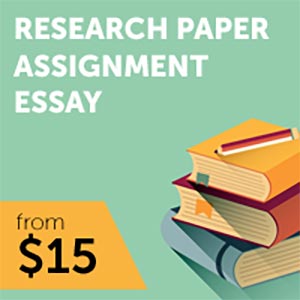
Useful links
- 5-paragraph Essay
- Admission Essay
- Argumentative Essay
- Cause and Effect Essay
- Classification Essay
- Comparison Essay
- Critical Essay
- Deductive Essay
- Definition Essay
- Exploratory Essay
- Expository Essay
- Literature Essay
- Narrative Essay
- Personal Essay
- Persuasive Essay
- Research Essay
- Response Essay
- Scholarship Essay
© 2004-2018 EssayInfo.com - Essay writing guides and tips. All rights reserved. Privacy Policy

Extended Essay: Formal vs. Informal Writing
- Extended Essay- The Basics
- Step 1. Choose a Subject
- Step 2. Educate yourself!
- Using Brainstorming and Mind Maps
- Identify Keywords
- Do Background Reading
- Define Your Topic
- Conduct Research in a Specific Discipline
- Step 5. Draft a Research Question
- Step 6. Create a Timeline
- Find Articles
- Find Primary Sources
- Get Help from Experts
- Search Engines, Repositories, & Directories
- Databases and Websites by Subject Area
- Create an Annotated Bibliography
- Advice (and Warnings) from the IB
- Chicago Citation Syle
- MLA Works Cited & In-Text Citations
- Step 9. Set Deadlines for Yourself
- Step 10. Plan a structure for your essay
- Evaluate & Select: the CRAAP Test
- Conducting Secondary Research
- Conducting Primary Research
- Formal vs. Informal Writing
- Presentation Requirements
- Evaluating Your Work
Differences Between Informal and Formal Essays
When writing your extended essay you should use language that is formal and academic in tone. The chart below gives you some idea of the differences between informal and formal essays. See the box below for examples of the differences in tone in informal and formal essays written on identical topics. A PDF of this chart, and the examples below, is in the box to the right , along with a list of tips for avoiding colloquial writing.
Examples of Informal and Formal Tone in Essay Writing
The following examples highlight the differences between formal and informal tone.
Language B - English
- Formal vs. Informal Writing A chart giving the differences between informal and formal essays in seven areas (author's viewpoint; subject/content (sources of evidence); tone; structure; location of the research question; vocabulary; and purpose. Also included are examples comparing informal and formal writing for essays in English, biology, and psychology.
- How to Avoid Colloquial (Informal) Writing While it may be acceptable in friendly e-mails and chat rooms, excessive colloquialism is a major pitfall that lowers the quality of formal written text. Here are some steps/tips that you can follow to help improve your overall writing.
- << Previous: Plagiarism
- Next: Presentation Requirements >>
- Last Updated: Feb 2, 2024 1:39 PM
- URL: https://libguides.westsoundacademy.org/ee
- AI Content Shield
- AI KW Research
- AI Assistant
- SEO Optimizer
- AI KW Clustering
- Customer reviews
- The NLO Revolution
- Press Center
- Help Center
- Content Resources
- Facebook Group
How to Write an Informal Essay Structure
Table of Contents
Writing informally is the best approach for personal essays. Writing in the first person lets you be transparent and vulnerable with your reader.
Additionally, your essay is emotional — readers will connect with what you are telling them. The content of your essay is separate from the idea of the essay itself.
The essay is just a vehicle for the thoughts behind your words. To start, you must learn to write an informal essay structure . This will help you better communicate with your readers.

What Exactly Is an Informal Essay?
Topics in an informal essay can range from personal to politically outwardly political. You cannot use “informal” in place of being informative or persuasive. The essay style is still employed: First-person communication without adhering to a traditional five-paragraph structure.
Also, you should write an informal essay that is “informal.” It is generally allowed to use slang and colloquialism in this essay. Although make sure you use caution and avoid using offensive or explicit terms.
When writing an informal essay, the conversation’s tone is similar to what you describe to a friend. What I find most appealing to this type of essay is to avoid overly academic writing. You must make the subject accessible to the average human.
Steps to Building an Informal Essay Structure
1. check informal essays examples..
Before you try to write your own, looking at specific examples of informal essays can be beneficial. When you read someone else’s article, you can observe how they use less formal language and talk about their topic more personally.
Popular magazines often have short, informal essays on various topics. Read how other writers use this less traditional style to say what they want. Write down qualities or methods you might want to add to your essay.
For instance, if someone used a lot of slang that made the paper feel more personal and alive, you may want to try it in your essay if it feels correct and natural.
2. Pick Your Topic
For informal essays, the sky’s the limit. For students who know precisely what they want to write about, it’s music and horrifying to others who don’t know what topic to choose.
Here are a few suggestions if you fall into the latter category.
- Think about 5-10 topics.
- Don’t self-edit; write anything that comes up.
- Consider issues that are important to you or have a lot to say.
- Make a list of any items you have a strong opinion on.
- Eliminate the ones you think will not work better.
- Choose the topic you feel is best suited for writing.
3. Draft an Outline
While outlining is helpful, it’ll work well for an informal essay. It can be immature or unscientific, so organize your thoughts. Put together an outline for the ideas you want to cover.
Now that you have a strategy, you can fill in the blanks more quickly for the general introduction, problem statement, claims, introduction of evidence, and conclusion.
4. Start Writing Your Essay
In informal essays, some of the best tools to help you out are “sample bullets.” These are short, one- sentence summaries highlighted in the draft of your essay .
They can be the difference between a great essay and a lousy one. They help you break topics into pieces that make sense and make reading your work much more manageable. Your outline, organized with sample bullets, really helps you.
Take time to proofread your messages carefully. When editing an informal essay, you are trying to find a slightly different set of criteria than in persuasive or other types of formal essays. The tone of your informal essay structure is also essential. If your style is too formal, then you will need to edit. Good luck and Happy Writing!

Abir Ghenaiet
Abir is a data analyst and researcher. Among her interests are artificial intelligence, machine learning, and natural language processing. As a humanitarian and educator, she actively supports women in tech and promotes diversity.
Explore All Essay Outline Tool Articles
How to write a synthesis essay outline.
One of the most interesting assignments you could have is writing a synthesis essay. For a college or university student,…
- Essay Outline Tool
Learning the Structure of an Informational Essay
Academic writing assignments, primarily essays, are required of all college and university students. That’s because they think it will aid…
The Correct Way to Structure an Article
Writing non-fiction has a set format that can be followed, which makes it not all that different from writing fiction.…
Exploring the Structure of a Response Essay
You will typically be expected to write in a formal and impersonal voice when you are given the assignment of…
Writing a Persuasive Essay? Use This Structure!
Writing essays is a requirement of your academic program as a college student. Whether you love them or loathe them,…
Writing a Proposal Essay? Read This!
Are you writing a proposal essay? To write it correctly, we have to know what a proposal essay actually is.…
How To Write An Informal Essay?
Low Cost, Fast Delivery, and Top-Quality Content: Buy Essay Now and Achieve Academic Excellence for Less!
Writing an Informal Essay can be an intimidating task for many students. After all, it is a less structured form of writing that requires creativity and careful consideration of your audience. Though Informal Essays may have fewer rules and regulations than other types of writing, there are still certain guidelines to follow when crafting an effective piece. This article will explore the basics of how to write an Informal Essay, highlighting key elements such as structure, content, and style.
Related: Best Place To Buy Essay Online?
Article structure
What Is An Informal Essay?
An Informal Essay is a piece of writing that typically contains personal thoughts and ideas on a specific topic. It is written in an informal style and can be used for various purposes, such as entertaining readers or conveying information in a casual way. Unlike formal essays, which are usually written to meet academic requirements, Informal Essays do not have strict guidelines regarding length, structure, or formatting; instead, they rely heavily on the writer’s creativity and opinion.
Informal essays often take the form of opinions, observations, or reflections about people, places, or events. They are generally more conversational than other essays and use less technical language. Additionally, informal essays can include humor and exaggeration to make their points. Informal essays may also include personal anecdotes from the writer’s life experiences that illustrate a point made in the essay.
Definition: Characteristics Of Informal Essays.
An Informal Essay is a form of non-fiction writing that utilizes personal experiences or observations to present new perspectives, ideas, or arguments. It is often written in a conversational tone and can contain elements of humor and wit. Unlike formal essays that are typically tightly structured, an informal essay may contain narrative elements and be more loosely organized.
Informal essays generally focus on the writer’s opinion rather than traditional academic research. Using anecdotes and personal stories allows for greater flexibility in style, allowing the writer to express themselves more freely than in a formal essay setting.
Additionally, informal essays often utilize more creative techniques, such as metaphor or allusion, to create a sense of engagement with the reader. Informal Essays can also explore controversial topics to challenge accepted norms or spark debate among readers.
Common Features: Structure & Tone.
Informal essays are a type of writing that is more relaxed and conversational than other types of essays. They are typically used in blogs, emails, and informal letters, as well as for creative writing pieces. They are often humorous and entertaining, making them enjoyable for readers to engage with. The structure and tone of informal essays vary depending on the purpose and audience, but there are also some common features to be aware of.
Informal essays usually consist of an introduction followed by several paragraphs that address a particular point or idea, each ending with a conclusion. It’s important to remember that these points should be connected in some way so that readers can easily follow the flow of your argument.
The structure of an informal essay is generally more flexible than a formal one. An informal essay can range from a single paragraph to several pages, depending on the subject matter and purpose. It’s up to the individual writer to determine what works best for their given piece.
The core components of the organization still apply; it should have clear transitions between ideas and contain supporting evidence where applicable. However, within this general framework, writers can take creative license to craft their unique approach as long as it remains organized and logical.
Related: Where Can I Buy Written Essays?
Purpose: Why Write An Informal Essay?
Writing an informal essay is an opportunity to explore a more relaxed and personal topic than other forms of writing, such as academic essays. This essay allows the writer to express creativity while developing important skills such as critical thinking and analysis. An informal essay can be used for entertainment purposes or to make serious points on various topics.
When writing an informal essay, it is important to consider the audience you are trying to reach; this will help guide your choice of words and style. Depending upon the purpose of the essay, you may use humor or satire. Informal essays can also be used as tools for self-expression and exploration; by reflecting on our own experiences, we can better understand ourselves and our place in the world.
Informal essays allow you to explore topics that may be sensitive, thought-provoking, or humorous. By writing in an informal style, you can amplify the impact of your stories and ideas. As a bonus, the process of writing helps you work through challenging issues and develop better problem-solving skills.
Informal essays often take the form of personal narratives, which allow you to communicate your experiences in a meaningful way. Writing about yourself can help you build self-awareness and gain insight into who you are. This type of reflective writing also allows readers to connect with your story on a deeper level since they may find their own lives reflected in yours.
Examples: Different Types Of Topics.
Informal essays can be written about numerous topics, from relationships to hobbies, travel stories to adventures, and much more. There are several types of informal essay topics for writers to choose from.
One popular type of topic for an informal essay focuses on a person’s relationship with another individual or group. This could include writing about a friendship between two people, the connection between siblings, how a parent affects their child’s development, or how someone interacts with the community around them. These topics can be explored through an informal essay while exploring significant ideas and related emotions.
One common type of informal essay focuses on self-reflection. This kind of essay gives the writer an opportunity to express their thoughts, observations, and opinions about themselves or their own experiences. For example, a person might write about how they overcame obstacles in life or how they overcame a difficult situation stronger than before.
Another popular topic for informal essays is humorous topics. These types of essays can use satire or irony to discuss topical issues entertainingly, engaging readers with clever wordplay rather than didactic argumentation.
How To Get Started With Writing An Informal Essay?
Are you looking for a way to express yourself through writing? An informal essay is a great way to kickstart your creative juices. Informal essays are written mainly for enjoyment, but they can also be used as a tool to help you think more critically about a particular topic or idea. Here are five steps that will help you get started with writing an informal essay:
1. Topic Selection.
Choosing the right topic for your informal essay is key to ensuring that your paper stands out from the rest and accurately conveys your ideas and opinions. Take some time to think about topics that interest you or would be relevant in today’s society. This will help ensure that you have plenty of material for research and writing when crafting your paper.
Take some time to brainstorm any ideas that come to mind and narrow them down until you find one that interests you or fits within the parameters of whatever assignment or project you’re working on. Make sure it will hold your interest throughout the writing process, so it doesn’t become too tedious.
2. Outline & Structure.
Creating an outline and structure for your informal essay is a key step in the writing process. With an outline, you can ensure that each point your essay makes is relevant and cohesive. Here are some tips for outlining and structuring your informal essay.
1. Establish the main points of your essay by breaking it down into sections using headings or subheadings. This will help you organize the different ideas related to each main point into separate subsections, which will become part of your outline.
2. Create a rough draft of how the section should be structured by deciding what topics should come first and then going from there.
3. Make sure that each point flows logically from one section to another so that readers can easily understand the overall message of your paper.
3. Drafting The Essay.
Drafting the essay is an important step in the writing process of an informal essay. During this stage, the writer can best express their ideas and bring together all of the components they have outlined and organized. Here are five tips to keep in mind when drafting your informal essay:
1. Be sure to plan out a logical structure for your essay. A clear outline is necessary to avoid disorganization and confusion. You must begin with a strong foundation before moving on to further steps.
2. Make sure your sentences are direct and concise – avoid complex language whenever possible.
3. Consider revising your essay to correct all grammar, spelling, and punctuation errors.
4. Make sure you have a clear understanding of the purpose of your essay. Understanding why this piece needs to be written will help keep it on track and ensure that the main point comes through in each paragraph, whether it’s for a class assignment or pleasure.
5. Use concrete language when describing ideas or people to create vivid images so readers can easily imagine what is described in the text.
4. Proofreading & Editing.
Proofreading and editing are essential steps in the process of writing an informal essay. It allows writers to refine their work, ensuring it meets all expectations and looks professional. Here are some tips for proofreading and editing your informal essay:
Read through your entire essay out loud or have someone else listen to you reading it. This helps you to find any awkward phrasing or typos that may have been overlooked during the first couple of passes. Reading out loud also allows you to ensure that all sentences flow naturally from one point to the next.
The next step of proofreading and editing involves checking for spelling, grammar, punctuation, and syntax errors. A spellchecker can help to identify misspelled words but should not be relied upon as it cannot spot all mistakes; for example, if you have written ‘form’ instead of ‘from’ or ‘their’ instead of ‘there,’ the spellchecker will not identify this mistake.
Next, go back through your essay again with a fine-tooth comb, looking for areas where content can be improved, such as better word choices or stronger arguments.
Also, break up long sentences into shorter ones when possible and condense ideas into fewer words when necessary.
Related: Where Is The Best To Buy Cheap Essays Online?
5. Add Final Touches.
The final step in writing an informal essay is adding the final touches. No matter how complex or straightforward the essay may be, it is essential to finish with a strong conclusion. To do this, begin by restating your thesis statement or main argument in different words to show that you have come full circle and proved your point.
Next, summarize your key points and how they support your argument. Then, end the essay on a powerful note, such as discussing the implications of the topic or providing advice for readers that can be derived from what was discussed in the essay.
Finally, proofread your work for grammar and spelling mistakes to ensure that it reads well and presents professional quality work. This step should be noticed, as small errors can take away from an otherwise perfect paper if left unchecked.
3 Writing Tips For Crafting An Informal Essay.
For people who are new to writing informal essays, it can be a daunting task. But with the right approach, anyone can craft a compelling essay. Here are three tips that any writer can use to make the process easier:
Tip 1: Use Humor & Tone.
When writing an informal essay, it is important to use humor and light-hearted language throughout your piece. This will lend a more conversational tone ideal for this type of essay. Also, humor can add interest and engage readers more effectively than dry language.
Tip 2: Incorporate Personal Experience.
This adds depth and emotion to the story, making it more engaging for readers. In addition, adding personal anecdotes gives credibility to any claims made in the essay and makes it more relatable to readers. Try to draw on experiences from family, friends, or even yourself when possible.
Tip 3: Keep Your Sentences Short & Simple.
Long sentences with complex syntax can quickly become overwhelming when reading an informal essay. To keep things flowing, break up long sentences into two or three shorter ones.
FAQ Section.
How to start informal writing.
First of all, consider what the purpose of your writing will be. Are you trying to share something funny or profound? Will it be more personal or opinionated? Deciding what kind of content you want can help guide the structure and tone you use throughout your piece.
Next, think about who will be reading it. If you’re writing for online readers outside of your inner circle, keep in mind that they may not know much about you; so make sure to provide enough context up front so they can understand where you’re coming from.
How Many Paragraphs Is An Informal Essay?
When it comes to the length of an informal essay, there is no one-size-fits-all answer, as the number of paragraphs in an essay depends on its purpose and content. Generally speaking, it’s fair to say that most informal essays will consist of three to five main body paragraphs.
Each paragraph should begin with a topic sentence that introduces the central idea discussed in that section. The supporting points following this should provide further detail or evidence for why this point is true or relevant. Within each paragraph, these ideas must be connected using smooth transitions so that sentences flow logically from one point to the next.
What Should Come First In The Introduction Of Informal Essays?
The introduction of an informal essay is often the most difficult part for students to write. A successful introduction sets up the essay for success, but it can take time to know what should come first when composing your thoughts. Knowing key points can help you craft an effective and engaging introduction that will draw readers in and make them want to keep reading.
First, decide on a topic or main point you would like to discuss. This will give you direction as you plan out the rest of your essay and allow readers to understand the focus immediately.
Then, start with a hook or attention-grabber that captures the reader’s interest and encourages them to read further. It could be an interesting anecdote, statistic, or quote related to your topic – anything that draws in your reader’s curiosity and makes them want to learn more.
At LanguageHumanities, we're committed to delivering accurate, trustworthy information. Our expert-authored content is rigorously fact-checked and sourced from credible authorities. Discover how we uphold the highest standards in providing you with reliable knowledge.
Learn more...
What Is an Informal Essay?
An informal essay can refer to a number of different things, depending on the level of education a student has reached, and the type of course he or she is in, as well as the overall purpose of the assignment. In general, this type of essay is written as a reflection or a response to something, or is written as a type of informational piece about a personal experience. This type of essay may also be written as fiction . These are just a few of the many options for informal writing; an instructor will provide specific directions as to the focus and length of the essay.
A common misconception when students are assigned an informal essay is that important rules of spelling and grammar go out the window. It is still important to use proper, formal language when writing informally in an educational setting, unless the piece is fiction and the language is deliberate. The length of this type of essay can vary, but generally it is fairly short as compared to more in-depth pieces, such as research papers. It is still important to have a clear focus in any essay, and a cohesive idea of what the essay is about.
A reflective essay is one of the most common types of informal essays. These are often written in response to a certain experience, such as watching a film, reading a book, or taking a class. Students who participate in community events or volunteer days are often asked to write an informal essay about the experience as well. In addition, if a student attends an event for extra credit -- such as a lecture or a play, for example -- the instructor might require an informal essay in order to get the extra credit to ensure the student actually went to the event.
Many students will also assign compositions to students simply to test writing skills and to determine how much the students have learned. This is especially common in the younger grades when students are still learning basic writing skills. A teacher will often provide a simple prompt and encourage students to write an informal essay about it. Students might be prompted to write a fictional story, or they might be asked to tell a story about an experience they have had. Asking students to summarize what they have learned that day in school is another common essay writing prompt.
AS FEATURED ON:

Related Articles
- What Is a Comparative Essay?
- What Is an Autobiographical Essay?
- What Is a Formal Essay?
- What Is Reflective Writing?
- What Is an Exploratory Essay?
- What Is a Critical Lens Essay?
- What Is an Expository Essay?
Discussion Comments
Post your comments.
- By: AlexOakenman A reflective essay is one of the most common types of informal essays.
- By: takasu At any age level, it is important to adhere to basic spelling and grammar rules when writing an informal essay.
- By: Monkey Business Some teachers provide simple prompts or ideas to help students write informal essays.
- By: Syda Productions Plagiarism when writing an essay may result in academic expulsion.
Informal Vs. Formal Writing: What’s The Difference?
- What Is Formal Writing?
- What Is Informal Writing?
- Formal Vs. Informal Writing
- Formal Example
- Informal Example
As a writer, you’re faced with a lot of choices related to your writing: how long should your essay be ? Who should be addressed in a cover letter ? What is a thesis statement ? But there’s one question that also applies to every composition: how do you distinguish writing that’s informal vs. formal?
That’s right. Whether a piece is informal or formal will influence everything down to the smallest comma and period. But what, exactly, is the difference between formal and informal writing? When do you use one over the other? Are they really that different? If you are wondering the answers to those questions, then read on as we explore the many different features between formal and informal writing.

What is formal writing ?
First, you should know that it is the intended readers that will determine if a writer should use formal writing or informal writing . Generally, formal writing is defined as writing targeted toward an audience that a person doesn’t personally know. Typically, formal writing is used when a person wants their writing to be viewed as professional, polite, authoritative, or some combination thereof. For this reason, formal writing is often used in professional settings. For example, formal writing is often the form of writing used in research and academic papers, corporate memos and emails, press releases, and job applications.
What is informal writing ?
Informal writing is the inverse of formal writing . In a manner of speaking, informal writing is the T-shirt-and-jeans counterpart to formal writing’s dress coat and pants. In general, informal writing is defined as writing targeted toward an audience that the writer knows personally or with whom the writer wants to establish a friendly tone. Informal writing may include inside jokes, slang, abbreviations, and local colloquialisms .
As you might expect, informal writing is common in casual settings such as social media and in texting between friends. However, you will often see informal writing used in other situations, such as in literature or in lighthearted feature stories in newspapers and magazines.
Formal vs. informal writing
There are many differences between formal and informal writing. We will cover a large number of them here, but this list won’t be exhaustive. Still, you should have a good idea how formal and informal writing differ after looking at these different features.
Grammar, spelling, and punctuation
In almost all cases, formal writing adheres to the proper rules of grammar, spelling, and punctuation . Informal writing, on the other hand, may not. A person may not intentionally break the rules of grammar in informal writing, but they know that a reader is unlikely to care about errors or nonstandard sentence structure.
- Formal writing: The writing was clear but had several mistakes; you should revise and redraft the article.
- Informal writing: The writing was clear, but had alot of mistakes… u should revise and redraft the article.
Formal writing doesn’t always have to follow stuffy, antiquated rules. Check out 5 formulaic writing rules you can explore breaking.
Sentence length
Generally speaking, formal writing often uses long, complex sentences that are connected using transitions. Informal writing often includes shorter sentences that may abruptly move from topic to topic.
- Formal writing: Surprise inspections will be performed on a regular basis as determined by the acting supervisor, who has the authority to request them as needed. Furthermore, employees should be prepared to submit their work for review in a timely fashion.
- Informal writing: I love my new sweater! Thank you!! Where do you want to meet for lunch?
Vocabulary and tone
Typically, formal writing has a serious tone and uses a sophisticated vocabulary that often includes large, complex words. Additionally, formal writing often uses technical terms that match the topic being discussed. For example, a medical text using formal writing will often use the term tibia rather than shinbone or a similar term. Informal writing will often instead have a lighter tone that uses simpler, commonly used words.
- Formal writing: The research team expeditiously and meticulously analyzed the findings in order to identify the origin of the Staphylococcus infection.
- Informal writing: We were out back chopping down some trees when Mom called.
Third person vs. first person/second person
In general, formal writing is usually written from the third person . Formal writing typically avoids using first- or second-person pronouns such as I, me, we, us, and you . By contrast, informal writing often uses first-, second-, and third-person perspectives while making frequent use of personal pronouns. Because of this difference, formal writing is also more likely to use the passive voice in order to avoid using a first- or second-person perspective.
- Formal writing: The data were gathered by using sorting algorithms.
- Informal writing: I used sorting algorithms to gather the data.
Make Your Writing Shine!
- By clicking "Sign Up", you are accepting Dictionary.com Terms & Conditions and Privacy policies.
- Name This field is for validation purposes and should be left unchanged.
Word choice
In general, formal writing will most likely avoid using many of the words or phrases that our dictionary has tagged as being informal. This includes terms such as wanna , gotta , gonna , ‘nuff , kerfuffle, cept, ’Merica, thingamajig , and many other examples of informal language. Relatedly, phrasal verbs are also often typically not used in formal writing . Formal writing will also typically avoid using slang, euphemisms , colloquialisms, expletives, vulgarities, nonstandard abbreviations, jargon , and online acronyms.
- Formal writing: Gregory wanted to remove the items from the box, but it was sealed tightly. Being unable to find scissors, he admitted defeat and ate a sandwich.
- Informal writing: Greg was dying to get the stuff outta the box, but the box was like it ain’t happening bro lol. He couldn’t find the damn scissors, so he said the hell with it and bounced to go scarf a hoagie.
Interjections
Typically, interjections are not used in formal writing . Going further, exclamation points usually don’t appear very often in formal writing. Both interjections and exclamation points are used in informal writing.
- Formal writing: The mixture violently erupted, catching bystanders unaware.
- Informal writing: The stuff exploded! Wow!
Contractions
Typically, contractions are avoided in formal writing , and the words are instead spelled out. In informal writing, contractions are commonly used.
Examples:
- Formal writing: The team would have purchased extra materials, but the store was not open.
- Informal writing: The team would’ve purchased extra materials, but the store wasn’t open.
Objectivity
In general, formal writing is usually written objectively . In most cases, writers attempt to avoid stating subjective thoughts or presenting personal opinions in the main text of formal writing. When presenting arguments in formal writing, writers often calmly present their side backed by supporting evidence and trustworthy sources . Informal writing can include (strongly worded) personal opinions, emotional appeals, and inflammatory language presented without evidence or supporting facts.
- Formal writing: As the evidence clearly shows, the director severely miscalculated production costs when initially presenting the film’s budget.
- Informal writing: The incompetent buffoon who claims to be a professional director blew the budget so badly that the studio should fire him as soon as possible.
Formal writing often entails referencing or researching what others have written. Check out these tips to avoid plagiarism.
Example of formal writing
The following excerpt shows an example of formal writing that was used in a statement released by American president Joe Biden:
Love is love, and Americans should have the right to marry the person they love. Today’s bipartisan vote brings the United States one step closer to protecting that right in law. The Respect for Marriage Act will ensure that LGBTQI+ couples and interracial couples are respected and protected equally under federal law, and provide more certainty to these families since the Supreme Court’s decision in Dobbs . I want to thank the Members of Congress whose leadership has sent a strong message that Republicans and Democrats can work together to secure the fundamental right of Americans to marry the person they love. I urge Congress to quickly send this bill to my desk where I will promptly sign it into law.
Example of informal writing
The following example of informal writing is a review of the movie Fight Club by a user of the aggregator website Metacritic:
Best movie of all time. Period. Seen it more than 28 times. Its a bible of what we have to learn. I say you are not your clothes. You are not the brands u wear, even when u think they re part of ur personality. Comb your hair. I ll tell everyone here the end of the movie, but that its not what this movie is about. First rule of fight club is… you do not talk about fight club. And if u havent seen this film then you are a hollow shell. Become human again and start by watching this lesson.
Explore the resources we've created for you to help up your writing game, all in one place.

Ways To Say
Synonym of the day

What is the key difference between Formal and Informal essays?
- Post author: Rajveer
- Post last modified: March 12, 2023
- Reading time: 7 mins read
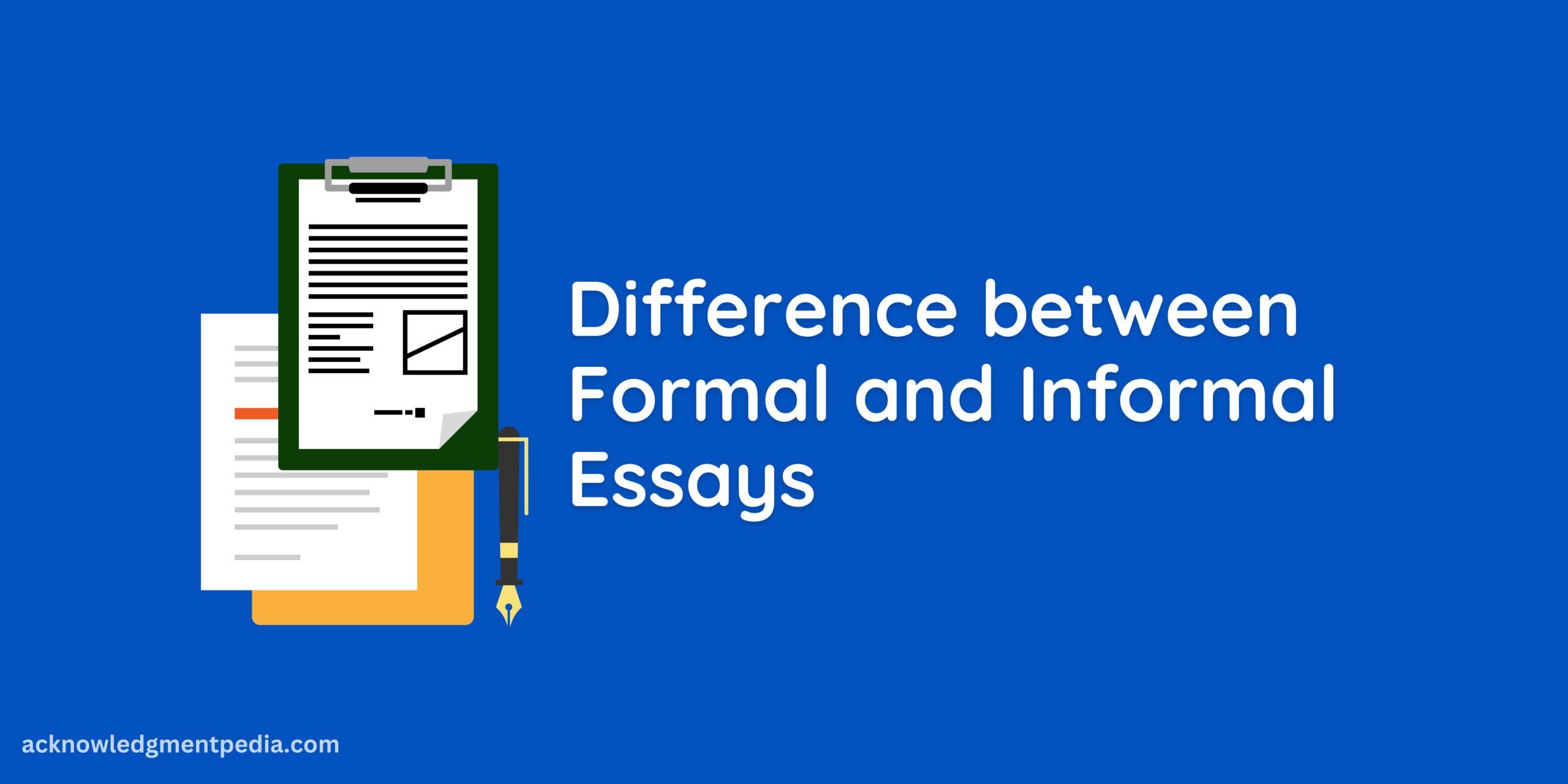
If you are on this page then I think you must have heard about these terms formal essay and informal essay. Basically, these are the two categories to differentiate in the essay. Whenever you are writing an essay, it will probably fall into one of these categories.
Essay writing is not a difficult task but when we talk about the difference between formal and informal essays then some beginners get confused with these two different types of essays. This article is specially written for those people who want to understand the difference between formal and informal essays.
If you are also wondering about the difference between formal and informal essays then you must read this article.
Formal Essays
Informal essays, 1. purpose of writing, 2. writing tone, 3. writing language, 4. writing characteristics, 5. structure of writing, 6. evidence for facts and data, final words on the difference between formal and informal essay, what is the difference between formal and informal essays.
A formal essay is one of the writing styles and categories in essay writing. A formal essay is written using a well-organized structure, vocabulary and punctuation. A formal essay is conducted with a formal tone and writing style and is more focused on giving readers a valuable perspective or solution.
A formal essay follows an academic and professional writing style. A formal essay does not contain informational words and the personal experience of the writer.
Informal essays tend to be more personal messages and conversations. Informal essays do not follow an academic and professional writing style and may include humorous words and personal opinions.
Writing an informal essay doesn’t require much topic research and grammar knowledge because it is more about just writing personal opinions.
Formal vs Informal Essays: The Key Differences You Need to Know
Both formal and informal essays are different categories of essay writing and they have some major differences. Below I have tried to write down some of the key points for the difference between formal and informal essays.
The purpose of formal essay writing is to present solutions and information for a specific topic. A formal essay includes a well-organized structure to represent logical arguments and thoughts.
Whereas an informal essay is a matter of expressing personal views and opinions on a specific topic.
The writing style and tone of both formal and informal essays are different. A formal essay is written in a professional manner. It excludes informal words and personal thoughts and focuses more on academic and professional writing.
Whereas an informal essay is more like a conversational message and may include some humorous words, and personal opinions.
A formal essay is written in formal language. It does not include personal expression or personal tone. While an informal essay may include informal language and words and personal thoughts and expressions.
Formal essay writing always includes only third-person pronouns. Some of the third-person pronouns are he, him, himself, she, her, herself, etc. While an informal essay mostly uses first personal pronouns. Some of the first-person pronouns are I, Me, My, We, Our, etc.
A formal essay follows an organized structure and focuses on easy navigation for readers to understand and connect with each paragraph. It includes typical academic content writing sections such as the introduction, main body and conclusion.
Informal essays, on the other hand, do not follow any structure. It can be flexible and the structure can vary from writer to writer. It is only focused on representing the idea and experience.
Formal essays usually require evidence for the statements, research, or data shown in the essay. Evidence and proof are not required in informal essays but sometimes you may need some proof to support your statement or idea.
Also Read: Guide for writing an essay fast and quickly
I hope the above key points helped you understand the difference between formal and informal essays. These are some key checks that you can use to identify whether an essay is formal or informal. Let me know if you still have any confusion
FAQ: Difference between Formal and Informal essay
Formal essays are written in a professional manner using good grammar, research, and evidence while informal essays are more like a conversational message.
You Might Also Like

How to write an Acknowledgement for the Project? Full Guide
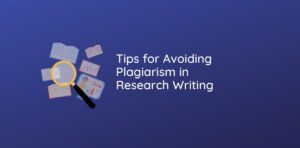
How to Avoid Plagiarism in Research Writing? Ultimate Guide

Best Academic Search Engines for Research and Educational Purposes

Best Books for Academic Writing | Improve Academic Writing
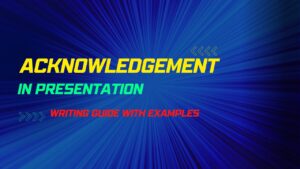
Acknowledgement in Presentation | Writing Guide with Examples

How to Write Dedication in Project? Ultimate Writing Guide

How to Write Introduction for Project Work? Ultimate Guide

5 Best Grammar Checker Tools for Academic Writing

How to Become a Good Academic Writer | 11 Tips to Follow
Leave a reply cancel reply.
Save my name, email, and website in this browser for the next time I comment.
- Have your assignments done by seasoned writers. 24/7
- Contact us:
- +1 (213) 221-0069
- [email protected]

Is an essay formal or informal: characteristics of each

Is an essay formal or informal
Essays are common in the world today. They have easily become part of our life.
The need to differentiate all types of essays that can be written has led to a popular question of whether essays are formal or informal. Essays can be both formal and informal.

To start with, formal essays are written for academic and professional purposes. They must be factual, research-based, and written in the third person.
On the other hand, informal essays are written for personal or casual services. They are also known as personal essays. Also, they are subjective and involve the writer giving his or her problem. They must be written in first person voice
Features of a Formal Essay
The following are the features that a formal essay should have:

1. Specific Language
Specific terms are preferred in formal essays to general ones. These terms help in providing more information and impact to the reader.
Also, physically concrete language is better than abstract terms because it helps give the reader a clear understanding. For example, instead of saying that “the scene was lovely and beautiful,” you can say that “the bright green grass and the clear blue sky were perfect for a day out.”
When descriptions are needed it is advisable to be as specific as possible.
2. Third person voice
Formal essays and any academic writing should always be written in the third person voice unless stated otherwise by the instructors. He, she, they, and one should be used instead of me or us.
Essays should not be referencing you unless in instances you ask for your own opinion which mostly occurs in coursework questions and not essays.
3. Active Voice over Passive Voice
To make the essay clearer and livelier to the audience active voice should be used because it uses fewer words and lays an emphasis on the doer of an action.
On the contrary, passive voice puts the receiver of the action first and puts the doer of the action after the verb or completely excludes the doer something that should only happen if the doer is not important.
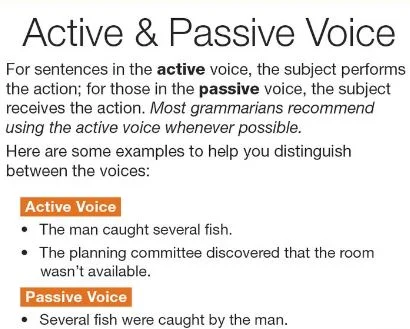
In essays, the subjects need to act which is guaranteed by the active voice, unlike the passive voice where the subject is acted upon.
4. Present Tense over Past Tense
The present tense is preferred in essays because it makes it them to read, draws the reader’s attention more than the past tense, and makes information more immediate.
However, some sciences require that essays be written in the past tense. Therefore, you must consult with professors about what tense to use.
5. No clichés
Clichés should not be used in essays because they are not original. Also, they are overused hence making your essay lose originality and creativity.
They are too common and often used and should be avoided. For example, saying “as blind as a bat” is a cliché. Instead, the writer should just say “severe vision problems.”
Informal Essay characteristics
1. first and second person.
When writing informal essays, the writer is free to use the first and second person . Therefore, pronouns such as I, us, we, you, and me can be used. They help show the ownership of thoughts and experiences.
When writing an informal essay, telling a story is important. The story has to be personal for it to connect with the audience.

If your informal essay does not connect to the target audience, then it means that it will not serve its purpose.
3. Simple Grammar
Informal essays should not be too complex. The writer should always use simple words that are easy to understand.
One does not need to be an expert to understand the content of your essay.
To add to that, the sentences need to be short. There is no concept in an informal essay that calls for a detailed explanation requiring you to use long sentences to deliver the point home.
Short sentences make your informal essay easy for readers to understand and follow through.
4. Use of Slang, Colloquialisms, and Humour
Slang should be used in informal writing to connect with the audience. However, it is important to ensure that the slang words are well known to avoid giving trouble to readers who may not know the slang.
Colloquialisms or the words and language used in the street should be used to make your informal essay connect with common people.
Also, humour should be used to make the reader of your informal essay laugh. Exaggeration, shock, and misdirection are techniques that you can use to deliver humor in the essay.
Differences between Formal and Informal Writing
Informal and formal essays can be differentiated using the following factors:
1. Vocabulary
In informal essays, the vocabulary is short, simple, and direct. There is no use of phrasal verbs.
On the other hand, long and hard vocabulary can be used in formal essays. Slangs and contractions are not used .
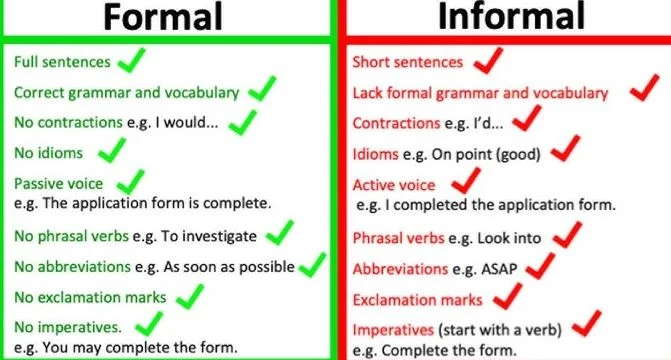
The tone used in formal essays should be objective. All emotions should be held back and if expressed they should be through the essay arguments.
However, the tone in informal essays is subjective and personal. What this means is that the tone can either be casual, conversational, amusing, or thoughtful.
3. Structure
There are no structure or format rules when it comes to writing informal essays. What you have to do mostly is just write. There is no logical standard or sequence put in place that dictates how the essay should be written.
Contrarily, formal essays have logical sequences and structures. Several formatting methods are required to be followed when writing these essays.
Also, arguments should be made in single paragraphs and points should never mix up. Remember the conclusion should also be a summary of the points discussed earlier.
Formal essays are mainly used for educational purposes to evaluate and detail analysis.
On the other hand, informal essays’ main purposes are interactions, entertainment, and reflections.
5. Subject/Content
The subject or content of formal essays mainly involves historical events, literature, and knowledge.
On the other hand, the content of informal essays mainly involves personal events and everyday events.
6. Characteristics
Formal essays are usually written using the third person pronouns while informal essays are written using first and second person pronouns.
Also, everyday language and slang can be used in informal essays while official and simple language is used in formal essays.

With over 10 years in academia and academic assistance, Alicia Smart is the epitome of excellence in the writing industry. She is our chief editor and in charge of the writing department at Grade Bees.
Related posts
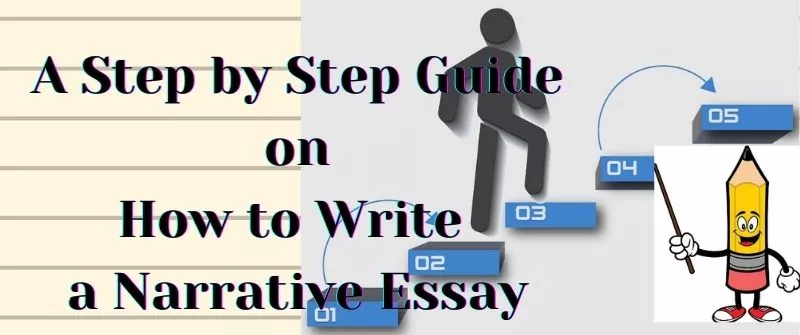
Guide to writing narrative essay
How to Write a Narrative Essay: A Stepwise Guide and Length
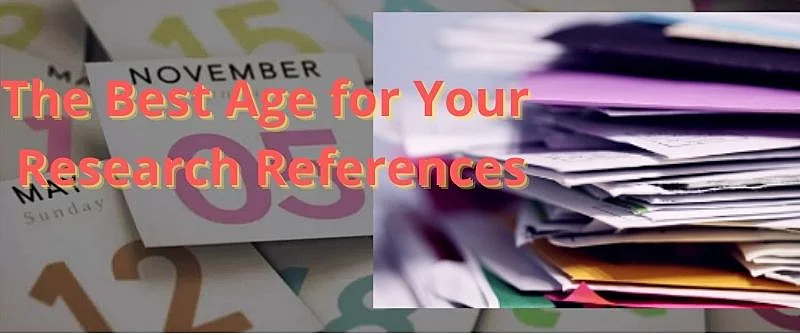
The Best Age for Your Research References
How Old Should References be: Best Age of Sources in writing

a Term Paper, a Research Paper, and an Essay
Term Paper vs Research Paper vs an Essay: Differences & Tips
How to Write a Formal Essay: Format, Rules, & Example
If you’re a student, you’ve heard about a formal essay: a factual, research-based paper written in 3rd person. Most students have to produce dozens of them during their educational career.
Our specialists will write a custom essay specially for you!

Writing a formal essay may not be the easiest task. But fear not: our custom-writing team is here to guide you through the process. This article will:
- explain what a formal essay is;
- show how to write it step by step;
- provide you with an essay sample.
👔 Formal Essay Definition
- ✅ How to Write
- ✍️ Writing Rules
- 🖥️ Essay Format
- 📑 Sample Paper
🔍 References
A formal essay is a well-structured piece of writing with a clear introduction, body, and conclusion. This type of essay often includes cited research, uses an academic tone, and is written in 3rd person. While writing a formal essay, it’s necessary to back up your arguments with factual evidence.
What Is an Informal Essay vs. Formal Essay?
Essays come in two formats: formal and informal (also known as personal .) They differ in terms of style and context. You can choose one of the formats depending on the situation and the type of paper you need to write.
Don’t know how to tell the difference between them? Well, here are some key characteristics of these essay types:
As you can see, these types of writing are almost total opposites. Informal essays are only reserved for creative assignments, which means that most of the papers you write need to be formal.
Just in 1 hour! We will write you a plagiarism-free paper in hardly more than 1 hour
Our article on creative essays can help you write an informal paper. But how do you craft a perfect formal essay? Keep reading to find out.
✅ How to Write a Formal Essay
Traditionally, a formal essay it’s composed of 3 sections: an introduction, 3 or more body paragraphs, and a conclusion. Let’s examine each part in detail.
Formal Essay Introduction
The introduction is what your essay starts with. Its primary goal is to catch the reader’s attention with a hook, briefly introduce the topic, and lead toward the thesis statement located at the end of the first paragraph.
Here is what you might want to keep in mind while writing the introduction:
If you want some more inspiration for your introduction, check out our article on hooks in writing .
Receive a plagiarism-free paper tailored to your instructions. Cut 20% off your first order!
Now on to the thesis statement : the key idea of your essay. When working on it, keep in mind that it should answer the central question in your topic and reflect your essay’s overall structure. your essay’s overall structure.
Suppose your topic is related to the teaching methods involving poetry. In that case, the thesis statement can be like this:
Teaching methods that involve reading and writing poetry in elementary school are beneficial for children as they enhance their capacity for empathy, develop creativity, and help with self-realization.
Formal Essay Body
The next part of an essay is the main body paragraphs. They support the thesis statement with well-developed arguments and explore the topic in-depth. Each body paragraph starts with a topic sentence stating its main point. The length of a paragraph can vary, but the best option is to have between 4 and 7 sentences.
To make the text flow easily, you may use transitional words. Here are some examples:
- after all,
- for instance,
- on the one/other hand,
- initially,
- as a result.
How to Write a Formal Essay Conclusion
Lastly, every essay needs closure. A good conclusion summarizes the essay’s main ideas, includes a paraphrased thesis, and encourages the readers to think more about the topic.
Get an originally-written paper according to your instructions!
The structure of a conclusion may change slightly depending on the subject. For instance, it can suggest some solutions to a problem, express an opinion, or give a recommendation. It’s important to remember that the conclusion is a part that emphasizes your essay’s most important points and doesn’t introduce new information.
If you’re curious about writing each essay part, check out our article on 5-paragraph essays .
✍️ Formal Writing Rules
Just like choosing the proper attire to wear to a formal event, we need to use the right words while writing a formal essay. Here are some suggestions that can help you maintain a formal tone in your paper:
Dos of formal writing
- Pay attention to your vocabulary. The words you will use in a formal essay will likely have a nuanced meaning. Make sure you know exactly what the terms mean, and do your best to sound precise.
- Use punctuation correctly. Here are some of the things to watch out for: Avoid exclamation marks; Use dashes for insertions; Use colons with enumerations; If you’re unsure of whether to use a punctuation mark or not, rewrite the sentence in a way that doesn’t require it.
- Use varied sentence structure. In formal writing, there is always a danger of sounding monotonous. Avoid repeating sentence structures to make your essay more readable.
- Provide references. It’s essential to cite every idea that you borrow. Try to paraphrase quotations from your sources: it will help you avoid plagiarism.
Don’ts of formal writing
- Avoid using pronouns. With words such as “I,” “me,” “we,” or “us,” an essay becomes wordy. It also makes the author seem less sure of their ideas. If you want to use personal pronouns, try substituting them with words like “the reader,” “viewers,” or “one.”
- Avoid using slang expressions and nonstandard diction. Slang words in a formal essay will make it less appealing to the readers. If you want to be taken seriously, it’s best to avoid those expressions and use proper Standard English.
- Avoid informal tone. When you write a formal essay, incorporate the language and the expressions you would use while delivering a speech, not the words you use when you casually talk to friends. A formal tone suggests that the author is serious about the topic and respects the audience.
- Avoid passive voice. Passive verbs are hard to read, and they are wordy. Use active voice to sound more straightforward and concise.
Contractions in Formal Writing
A contraction is usually a combination of two words into one, such as “don’t,” “isn’t,” “can’t,” and “wouldn’t.” When you work on a formal essay, it’s essential to be careful about contractions. It’s inappropriate to use them in academic writing, so it’s best to stick to the full variant.
However, there are exceptions to this rule. For instance, when working with direct quotations, it’s essential to reproduce words exactly as they are used in the original. To learn more about it, be sure to check out the University of North Florida’s article on in-text citations .
What to Use Instead of “You” in an Essay
Another common mistake students make is using the “you” and “yours” pronouns to address the readers. This mistake can make the essay overly informal and lead to misinterpretations of the text.
How do you fix it? Our advice is to replace 2nd-person pronouns with the following words:
- individuals,
You can find more formal writing tips in this informative video from Smrt English:
🖥️ Formal Essay Format
Now that we’ve discussed formal essay writing in detail, it’s time to look at the formatting. A formal essay is usually written in MLA or APA formats. If you’re asked to write a paper in one of these formats, you may find the guidelines below helpful:
📑 Formal Essay Example
Here is an excellent sample of a formal essay that uses all the guidelines mentioned in this article. It will help you to produce a perfect paper of your own:
For more information, check out Purdue OWL’s resources on various formatting styles .
Formal Essay Topics
- Stress management techniques
- The effects of coffee
- Negative effects of technology on children
- Causes and outcomes of organizational conflicts in sports
- Different types of friends
- Same-sex marriages in the United States
- Are early marriages harmful or beneficial?
- How do nutrition and hydration improve athletes’ performance?
- Is polygamy morally acceptable?
- Different features of sports business
- What characterizes friendship in the age of media ?
- Positive and negative effects of tourism on environment in the Caribbean
- How does society treat single parents ?
- How does the uninvolved parenting style affect child’s future well-being?
- The role of family relationships in Odyssey
- Financial concepts in sport finance
- Main features of a strong marriage
- The importance of media coverage for sport teams
- Reasons why students choose to get internship
- The role of stadiums in the sports industry
- The multiracial family: the Carters case analysis
- Characteristics of children’s sports
- Crucial factors affecting health fitness
- How is technology used in hotel management ?
- Structure and operational context of Four Seasons
- What are the main qualities of a true friend?
- Different websites that promote rental properties
- The imperative aspects of tourism
- Importance of hotel training
- What factors determine adolescents’ adjustment after they experience parental divorce ?
- How does tobacco use affect the human body?
- The importance of language and world view for communication
- What makes a combination of reinforcement and punishment in parenting efficient?
- The scientific approach of sports economics
- How does divorce affect children?
- Living on-campus vs. living off-campus when attending university: a comparison
- How does the New Moves program promote a healthy lifestyle?
- How to be an effective counselor
- Various types of restaurants in Ireland
- Carolina Dog’s characteristics
- Comparison of Monzameon’s The Love Suicides at Amijima and Tartuffe by Moliere
- Comparing homosexual and heterosexual families
- How is family presented in Everyday Use by Alice Walker ?
- In what ways can Anaerobic Threshold be assessed?
- Is bad parenting a healthcare problem?
- Why student-athletes should benefit from sports
- Mind-body awareness and its health benefits
- Can punishment boost academic performance?
- Techniques to teach students swimming
- Issues faced by the sports licensing field
Thanks for reading through this guide! We hope that you found it helpful and now have a better idea of how to write an excellent formal essay. Don’t hesitate to share our article with a friend who may need it. Good luck!
Further reading:
- How to Write a Critical Thinking Essay: Examples & Outline
- What Is a Discourse Analysis Essay: Example & Guide
- How to Write a Narrative Essay Outline: Template & Examples
- How to Write a Précis: Definition, Guide, & Examples
❓ Formal Essay FAQs
It’s best not to use pronouns such as “I,” “my,” “we,” “our,” etc., in a formal essay since it give the paper an informal tone and the text becomes wordy. It also makes the writer seem less sure about their ideas.
It’s better to avoid using parentheses and dashes in formal academic writing. If the information you want to include in the essay is important enough, it should be a part of the sentence. Otherwise, you can simply omit it.
The formal and informal essays differ in style and context. While a formal essay is a piece of well-structured writing that tries to convince the reader by providing arguments, an informal essay has no set structure. It reflects the author’s personal thoughts or opinions.
Starting your sentence with “because” in formal writing is not the best idea. The word “because” is a subordinate conjunction, which means it’s used to join the main clause to a subordinate clause, not to start a sentence.
It’s best to avoid using 1st- and 2nd-person pronouns, slang expressions, nonstandard diction, and contractions in a formal essay. They are primarily used in daily speech and are considered inappropriate in academic writing.
- Point of View in Academic Writing: St. Louis Community College
- Components of a Good Essay: University of Evansville
- Introductions & Conclusions: University of Arizona Global Campus
- How to Improve Your Academic Writing: University of York
- Nine Basic Ways to Improve Your Style in Academic Writing: University of California, Berkeley
- Academic Writing Style: Organizing Your Social Sciences Research Paper: University of Southern California
- Formal and Informal Style: Northern Illinois University
- Formal Writing: Davenport University: LibGuides
- Share to Facebook
- Share to Twitter
- Share to LinkedIn
- Share to email

Rhetorical analysis is never a simple task. This essay type requires you to analyze rhetorical devices in a text and review them from different perspectives. Such an assignment can be a part of an AP Lang exam or a college home task. Either way, you will need a solid outline...

A synthesis essay requires you to work with multiple sources. You combine the information gathered from them to present a well-rounded argument on a topic. Are you looking for the ultimate guide on synthesis essay writing? You’ve come to the right place! In this guide by our custom writing team,...

A critical analysis essay is an academic paper that requires a thorough examination of theoretical concepts and ideas. It includes a comparison of facts, differentiation between evidence and argument, and identification of biases. Crafting a good paper can be a daunting experience, but it will be much easier if you...

Process analysis is an explanation of how something works or happens. Want to know more? Read the following article prepared by our custom writing specialists and learn about: process analysis and its typesa process analysis outline tipsfree examples and other tips that might be helpful for your college assignment So,...

A visual analysis essay is an academic paper type that history and art students often deal with. It consists of a detailed description of an image or object. It can also include an interpretation or an argument that is supported by visual evidence. In this article, our custom writing experts...

Want to know how to write a reflection paper for college or school? To do that, you need to connect your personal experiences with theoretical knowledge. Usually, students are asked to reflect on a documentary, a text, or their experience. Sometimes one needs to write a paper about a lesson...

A character analysis is an examination of the personalities and actions of protagonists and antagonists that make up a story. It discusses their role in the story, evaluates their traits, and looks at their conflicts and experiences. You might need to write this assignment in school or college. Like any...
![informal essay is what Critical Writing: Examples & Brilliant Tips [2024]](https://custom-writing.org/blog/wp-content/uploads/2021/02/fingers-note-report-journalist-filling-284x153.jpg)
Any critique is nothing more than critical analysis, and the word “analysis” does not have a negative meaning. Critical writing relies on objective evaluations of or a response to an author’s creation. As such, they can be either positive or negative, as the work deserves. To write a critique, you...

If you are assigned to write a rhetorical analysis essay, you have one significant advantage. You can choose a text from an almost infinite number of resources. The most important thing is that you analyze the statement addressed to an audience. The task of a rhetorical analysis essay is to...

Any literary analysis is a challenging task since literature includes many elements that can be interpreted differently. However, a stylistic analysis of all the figurative language the poets use may seem even harder. You may never realize what the author actually meant and how to comment on it! While analyzing...

As a student, you may be asked to write a book review. Unlike an argumentative essay, a book review is an opportunity to convey the central theme of a story while offering a new perspective on the author’s ideas. Knowing how to create a well-organized and coherent review, however, is...

The difference between an argumentative and persuasive essay isn’t always clear. If you’re struggling with either style for your next assignment, don’t worry. The following will clarify everything you need to know so you can write with confidence. First, we define the primary objectives of argumentative vs. persuasive writing. We...
- Share full article
Advertisement
Supported by
What Researchers Discovered When They Sent 80,000 Fake Résumés to U.S. Jobs
Some companies discriminated against Black applicants much more than others, and H.R. practices made a big difference.

By Claire Cain Miller and Josh Katz
A group of economists recently performed an experiment on around 100 of the largest companies in the country, applying for jobs using made-up résumés with equivalent qualifications but different personal characteristics. They changed applicants’ names to suggest that they were white or Black, and male or female — Latisha or Amy, Lamar or Adam.
On Monday, they released the names of the companies . On average, they found, employers contacted the presumed white applicants 9.5 percent more often than the presumed Black applicants.
Yet this practice varied significantly by firm and industry. One-fifth of the companies — many of them retailers or car dealers — were responsible for nearly half of the gap in callbacks to white and Black applicants.
Two companies favored white applicants over Black applicants significantly more than others. They were AutoNation, a used car retailer, which contacted presumed white applicants 43 percent more often, and Genuine Parts Company, which sells auto parts including under the NAPA brand, and called presumed white candidates 33 percent more often.
In a statement, Heather Ross, a spokeswoman for Genuine Parts, said, “We are always evaluating our practices to ensure inclusivity and break down barriers, and we will continue to do so.” AutoNation did not respond to a request for comment.
Companies With the Largest and Smallest Racial Contact Gaps
Of the 97 companies in the experiment, two stood out as contacting presumed white job applicants significantly more often than presumed Black ones. At 14 companies, there was little or no difference in how often they called back the presumed white or Black applicants.
Source: Patrick Kline, Evan K. Rose and Christopher R. Walters
Known as an audit study , the experiment was the largest of its kind in the United States: The researchers sent 80,000 résumés to 10,000 jobs from 2019 to 2021. The results demonstrate how entrenched employment discrimination is in parts of the U.S. labor market — and the extent to which Black workers start behind in certain industries.
“I am not in the least bit surprised,” said Daiquiri Steele, an assistant professor at the University of Alabama School of Law who previously worked for the Department of Labor on employment discrimination. “If you’re having trouble breaking in, the biggest issue is the ripple effect it has. It affects your wages and the economy of your community going forward.”
Some companies showed no difference in how they treated applications from people assumed to be white or Black. Their human resources practices — and one policy in particular (more on that later) — offer guidance for how companies can avoid biased decisions in the hiring process.
A lack of racial bias was more common in certain industries: food stores, including Kroger; food products, including Mondelez; freight and transport, including FedEx and Ryder; and wholesale, including Sysco and McLane Company.
“We want to bring people’s attention not only to the fact that racism is real, sexism is real, some are discriminating, but also that it’s possible to do better, and there’s something to be learned from those that have been doing a good job,” said Patrick Kline, an economist at the University of California, Berkeley, who conducted the study with Evan K. Rose at the University of Chicago and Christopher R. Walters at Berkeley.
The researchers first published details of their experiment in 2021, but without naming the companies. The new paper, which is set to run in the American Economic Review, names the companies and explains the methodology developed to group them by their performance, while accounting for statistical noise.
Sample Résumés From the Experiment
Fictitious résumés sent to large U.S. companies revealed a preference, on average, for candidates whose names suggested that they were white.

To assign names, the researchers started with a prior list that had been assembled using Massachusetts birth certificates from 1974 to 1979. They then supplemented this list with names found in a database of speeding tickets issued in North Carolina between 2006 and 2018, classifying a name as “distinctive” if more than 90 percent of people with that name were of a particular race.
The study includes 97 firms. The jobs the researchers applied to were entry level, not requiring a college degree or substantial work experience. In addition to race and gender, the researchers tested other characteristics protected by law , like age and sexual orientation.
They sent up to 1,000 applications to each company, applying for as many as 125 jobs per company in locations nationwide, to try to uncover patterns in companies’ operations versus isolated instances. Then they tracked whether the employer contacted the applicant within 30 days.
A bias against Black names
Companies requiring lots of interaction with customers, like sales and retail, particularly in the auto sector, were most likely to show a preference for applicants presumed to be white. This was true even when applying for positions at those firms that didn’t involve customer interaction, suggesting that discriminatory practices were baked in to corporate culture or H.R. practices, the researchers said.
Still, there were exceptions — some of the companies exhibiting the least bias were retailers, like Lowe’s and Target.
The study may underestimate the rate of discrimination against Black applicants in the labor market as a whole because it tested large companies, which tend to discriminate less, said Lincoln Quillian, a sociologist at Northwestern who analyzes audit studies. It did not include names intended to represent Latino or Asian American applicants, but other research suggests that they are also contacted less than white applicants, though they face less discrimination than Black applicants.
The experiment ended in 2021, and some of the companies involved might have changed their practices since. Still, a review of all available audit studies found that discrimination against Black applicants had not changed in three decades. After the Black Lives Matter protests in 2020, such discrimination was found to have disappeared among certain employers, but the researchers behind that study said the effect was most likely short-lived.
Gender, age and L.G.B.T.Q. status
On average, companies did not treat male and female applicants differently. This aligns with other research showing that gender discrimination against women is rare in entry-level jobs, and starts later in careers.
However, when companies did favor men (especially in manufacturing) or women (mostly at apparel stores), the biases were much larger than for race. Builders FirstSource contacted presumed male applicants more than twice as often as female ones. Ascena, which owns brands like Ann Taylor, contacted women 66 percent more than men.
Neither company responded to requests for comment.
The consequences of being female differed by race. The differences were small, but being female was a slight benefit for white applicants, and a slight penalty for Black applicants.
The researchers also tested several other characteristics protected by law, with a smaller number of résumés. They found there was a small penalty for being over 40.
Overall, they found no penalty for using nonbinary pronouns. Being gay, as indicated by including membership in an L.G.B.T.Q. club on the résumé, resulted in a slight penalty for white applicants, but benefited Black applicants — although the effect was small, when this was on their résumés, the racial penalty disappeared.
Under the Civil Rights Act of 1964, discrimination is illegal even if it’s unintentional . Yet in the real world, it is difficult for job applicants to know why they did not hear back from a company.
“These practices are particularly challenging to address because applicants often do not know whether they are being discriminated against in the hiring process,” Brandalyn Bickner, a spokeswoman for the Equal Employment Opportunity Commission, said in a statement. (It has seen the data and spoken with the researchers, though it could not use an academic study as the basis for an investigation, she said.)
What companies can do to reduce discrimination
Several common measures — like employing a chief diversity officer, offering diversity training or having a diverse board — were not correlated with decreased discrimination in entry-level hiring, the researchers found.
But one thing strongly predicted less discrimination: a centralized H.R. operation.
The researchers recorded the voice mail messages that the fake applicants received. When a company’s calls came from fewer individual phone numbers, suggesting that they were originating from a central office, there tended to be less bias . When they came from individual hiring managers at local stores or warehouses, there was more. These messages often sounded frantic and informal, asking if an applicant could start the next day, for example.
“That’s when implicit biases kick in,” Professor Kline said. A more formalized hiring process helps overcome this, he said: “Just thinking about things, which steps to take, having to run something by someone for approval, can be quite important in mitigating bias.”
At Sysco, a wholesale restaurant food distributor, which showed no racial bias in the study, a centralized recruitment team reviews résumés and decides whom to call. “Consistency in how we review candidates, with a focus on the requirements of the position, is key,” said Ron Phillips, Sysco’s chief human resources officer. “It lessens the opportunity for personal viewpoints to rise in the process.”
Another important factor is diversity among the people hiring, said Paula Hubbard, the chief human resources officer at McLane Company. It procures, stores and delivers products for large chains like Walmart, and showed no racial bias in the study. Around 40 percent of the company’s recruiters are people of color, and 60 percent are women.
Diversifying the pool of people who apply also helps, H.R. officials said. McLane goes to events for women in trucking and puts up billboards in Spanish.
So does hiring based on skills, versus degrees . While McLane used to require a college degree for many roles, it changed that practice after determining that specific skills mattered more for warehousing or driving jobs. “We now do that for all our jobs: Is there truly a degree required?” Ms. Hubbard said. “Why? Does it make sense? Is experience enough?”
Hilton, another company that showed no racial bias in the study, also stopped requiring degrees for many jobs, in 2018.
Another factor associated with less bias in hiring, the new study found, was more regulatory scrutiny — like at federal contractors, or companies with more Labor Department citations.
Finally, more profitable companies were less biased, in line with a long-held economics theory by the Nobel Prize winner Gary Becker that discrimination is bad for business. Economists said that could be because the more profitable companies benefit from a more diverse set of employees. Or it could be an indication that they had more efficient business processes, in H.R. and elsewhere.
Claire Cain Miller writes about gender, families and the future of work for The Upshot. She joined The Times in 2008 and was part of a team that won a Pulitzer Prize in 2018 for public service for reporting on workplace sexual harassment issues. More about Claire Cain Miller
Josh Katz is a graphics editor for The Upshot, where he covers a range of topics involving politics, policy and culture. He is the author of “Speaking American: How Y’all, Youse, and You Guys Talk,” a visual exploration of American regional dialects. More about Josh Katz
From The Upshot: What the Data Says
Analysis that explains politics, policy and everyday life..
Employment Discrimination: Researchers sent 80,000 fake résumés to some of the largest companies in the United States. They found that some discriminated against Black applicants much more than others .
Pandemic School Closures: A variety of data about children’s academic outcomes and about the spread of Covid-19 has accumulated since the start of the pandemic. Here is what we learned from it .
Affirmative Action: The Supreme Court effectively ended race-based preferences in admissions. But will selective schools still be able to achieve diverse student bodies? Here is how they might try .
N.Y.C. Neighborhoods: We asked New Yorkers to map their neighborhoods and to tell us what they call them . The result, while imperfect, is an extremely detailed map of the city .
Dialect Quiz: What does the way you speak say about where you’re from? Answer these questions to find out .
15 Reasons Teachers Say Social Media Isn’t All Bad for Students

- Share article
Social media is the bane of many educators’ existence.
The platforms distract students from paying attention in class, make it harder for kids to communicate in-person, keep teens feeling isolated, and hurt students’ overall self-confidence, educators say.
But many teachers and school and district leaders do see some positive impact from the apps and platforms that they otherwise disdain.
One big bright spot: social media gives students a chance to pick up knowledge or delve into topics that they aren’t learning about in school. Thirty percent of educators surveyed by the EdWeek Research Center in December and January identified that learning opportunity as a positive outcome of social media use.
“Social media is a place where young people do engage in some self-directed and informal learning,” said Jeff Carpenter, a professor of education at Elon University who studies social media in education, who is also a former high school teacher. “And I think [for] teachers, there’s interest in encouraging students not just to learn within the confines of the school building, not just to learn about the things that teachers tell them they have to learn about, but to realize that you can learn outside of the school context, you can learn [about] topics that aren’t assigned to you. Follow your passions. Explore things.”
Nearly another quarter of educators surveyed said their students have been able to go deeper into topics they are learning about in school through social media, developed positive friendships, improved their creative skills, or received recognition or praise for their accomplishments.
Another quarter of educators surveyed said they couldn’t think of a single positive development arising from students’ social media use. The nationally representative survey of 595 educators was conducted from Dec. 21, 2023 to Jan. 2, 2024.
While Stefanie McKoy, a special education teacher at Branson Middle School in Missouri, understands why some teachers find social media nothing but problematic, her own perspective is more nuanced.
“Social media is a way for students to connect to the world,” said McKoy, who also works as a lecturer at University of Arkansas and studied social media platforms while pursuing her doctorate . “It gives students power, and a sense of choice. … I think what draws students to social media is that they’re like, ‘Oh, hey, you know, I can purposely look at this,’ or, ‘Hey, there’s another student that looks like me, but maybe they’re at a different school.’ And I think that that’s really great.”
Still, McKoy thinks students need help in navigating social media platforms safely and with a critical eye.
“I think that we have to do a better job at preparing our students for social media use,” she said. “And we as educators haven’t necessarily caught up to that yet.”
Sign Up for EdWeek Tech Leader
Edweek top school jobs.

Sign Up & Sign In


COMMENTS
An informal essay is a nonfiction essay that follows no specific structure and is based solely on the author's ideas and reflections. An informal essay is often written in the first or second ...
An informal essay is an essay that is written for enjoyment rather than to argue or support a thesis with scholarly evidence. The essay is usually personal in nature and based on memory. A good example of an informal essay is - The happiest day of my life.
Determine the purpose of the future essay. 2. List as many subjects in the focus of your interest as possible. 3. Evaluate each of the topics in the list. 4. Develop a topic of choice using any paper structure you like. 5. Double-check and proofread the completed paper.
The informal essay can be much less restricted by structural conformities and much more personal in both approach and expression. Allow your personal opinions and mode of expression to show through in an informal essay, rather than trying to sound 'academic'. Your own 'voice' should be clearly audible in the informal essay and you ...
Although an informal essay may have a casual style, it has a simple structure than the formal one. An informal essay tends to be more personal, but you can still use it to communicate objective opinions. In a formal essay, an essayist is quietly introducing their contemplations behind the words; however, in an informal paper, the writer is associated with the reader in a conversational style.
You can use long, elaborate, and emotional paragraphs in informal writing. 8. There is a structure called the five-paragraph structure that should be maintained in a formal essay. There is no strict rule about an informal essay. It is best to write the essay in a structural format so that it is easy to follow.
The informal outline should briefly list the points you're going to make. You don't have to stick to the formal 5-paragraph essay structure, but your paper will still need an introduction, body, and conclusion. Plan what you'll write in each section. Formulate your main idea and think of the main goal you want to achieve with this essay.
The informal essay tends to be more personal than the formal, even though both may express subjective opinions. In a formal essay the writer is a silent presence behind the words, while in an informal essay the writer is speaking directly to the reader in a conversational style. If you are writing informally, try to maintain a sense of your own ...
Learn to write engaging informal essays in this educational video. Discover key elements: choosing captivating topics, adopting a friendly tone, and incorpor...
The informal essay format is impossible without this essay part. The body is the largest part because its purpose is to explain everything you did not manage to say in the introduction. As been said, the introduction keeps the intrigue, and the body works as a guide that recalls historical events and facts about the place in the smallest details.
Differences Between Informal and Formal Essays. When writing your extended essay you should use language that is formal and academic in tone. The chart below gives you some idea of the differences between informal and formal essays. See the box below for examples of the differences in tone in informal and formal essays written on identical topics.
When writing an informal essay, the conversation's tone is similar to what you describe to a friend. What I find most appealing to this type of essay is to avoid overly academic writing. You must make the subject accessible to the average human. Steps to Building an Informal Essay Structure 1. Check Informal Essays Examples.
to allot or assign. The main purpose of the informal essay is to persuade. T/F. False. The informal essay is: personal and open. The informal essay usually uses ________ to relay information in an entertaining way. humor.
Informal essays may also include personal anecdotes from the writer's life experiences that illustrate a point made in the essay. Definition: Characteristics Of Informal Essays. An Informal Essay is a form of non-fiction writing that utilizes personal experiences or observations to present new perspectives, ideas, or arguments. It is often ...
4. Paragraph your essay. Your formal essay should be well formatted and the paragraphs well-articulated. Each idea should be expressed in a new section where a sentence should range from 10 to 25 words. This is, however, dependent on the extent of explanation required plus the expected word count. 5.
B. Miller. An informal essay can refer to a number of different things, depending on the level of education a student has reached, and the type of course he or she is in, as well as the overall purpose of the assignment. In general, this type of essay is written as a reflection or a response to something, or is written as a type of ...
We break down some key elements of how to write for a formal and an informal audience, with examples of formal vs. informal writing along the way.
The purpose of formal essay writing is to present solutions and information for a specific topic. A formal essay includes a well-organized structure to represent logical arguments and thoughts. Whereas an informal essay is a matter of expressing personal views and opinions on a specific topic. 2. Writing Tone.
Informal and formal essays can be differentiated using the following factors: 1. Vocabulary. In informal essays, the vocabulary is short, simple, and direct. There is no use of phrasal verbs. On the other hand, long and hard vocabulary can be used in formal essays. Slangs and contractions are not used. 2.
True or False: The main purpose of the informal essay is to persuade. False. The informal essay usually uses ____ to relay information in an entertaining way. Humor. The informal essay is: Personal and Open. What has the essay "every dog should own a man" that naturally makes the essay humorous? He has reserved the normal relationship between ...
Informal essay Formal essay ; Purpose: Usually, the purpose of an informal essay is to share opinions or to entertain the reader. A formal essay aims to critically analyze facts, details, and ideas to prove a point. Pronouns use: Addresses the reader directly and uses 1st-person pronouns. Uses 3rd-person pronouns and doesn't address the ...
Known as an audit study, the experiment was the largest of its kind in the United States: The researchers sent 80,000 résumés to 10,000 jobs from 2019 to 2021. The results demonstrate how ...
iStock/Getty. Social media is the bane of many educators' existence. The platforms distract students from paying attention in class, make it harder for kids to communicate in-person, keep teens ...